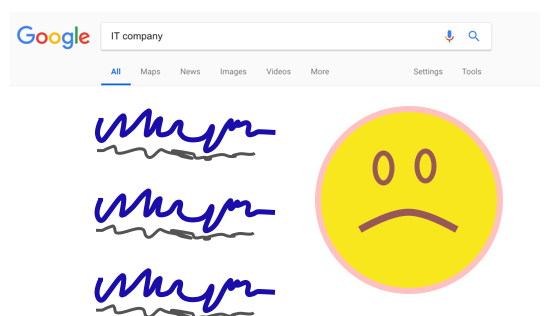
Have your Google rankings dropped suddenly, or perhaps gradually over time but you are noticing it for the first time now? This can be a serious offense for your website performance and business, especially if you are reliant on organic search marketing for new leads.

It’s important that you diagnose the issue quickly so you can get your SEO on the right track.
Here are some questions to ask as you diagnose why your Google rankings dropped, and best practices to help bring you back on top.
If one keyword ranking dropped, you have a different matter on your hands than if many keywords seemed to drop within a similar time period.
Related reading: How to Create a Keyword Strategy for SEO
Did you notice a sudden drop that defies an otherwise upward trend? Or is the decline gradual and predictable based on historical trends?
If you noticed a sudden drop in a keyword that you typically rank well for, your issue is likely more technical in nature. For example, you may have been “dinged” for a slow-loading website, a poorly built page with missing or non-optimized HTML tags, or a problematic backlink.
If your rankings drop more gradually over time, your issue is likely more strategic. For example, it’s likely that you haven’t been publishing new content around that keyword, or building new backlinks across your website in between key pages.
When you get to the bottom of the problem by asking the questions above, your solution may become clear. For example, maybe you need to fix an SEO error like a non-optimized title tag or prevent two pages from competing on the same keyword.
However, if you are dealing with a wider issue, get back to the basics and follow best practices for SEO.
By following the above best practices, you can solve and prevent mostly any SEO or keyword issue that comes your way.
by Jonathan Franchell, CEO of Ironpaper - For more tips and hacks: Need to remove a new line after h1 tags? Both web designers and SEO practitioners need to employ headline tags: H1, H2, H3 in several ways to improve web page structure and tag...

The marketing industry is transforming significantly due to generative AI and increasing market complexity. Gartner's prediction of a 25% decline in traditional search traffic suggests that the era of search engines is dying. AI tools, particularly...

The Crowded Arena of the IT Marketplace Updated December 2024 The Information Technology (IT) landscape is experiencing rapid growth and intensifying competition. IT spending is projected to reach nearly 5.1 trillion U.S. dollars in 2024, a...

Marketing healthcare technology presents unique challenges that differ significantly from other industries. The complexity of medical products, the stringent regulatory environment, and the diverse needs of healthcare providers create barriers that...
